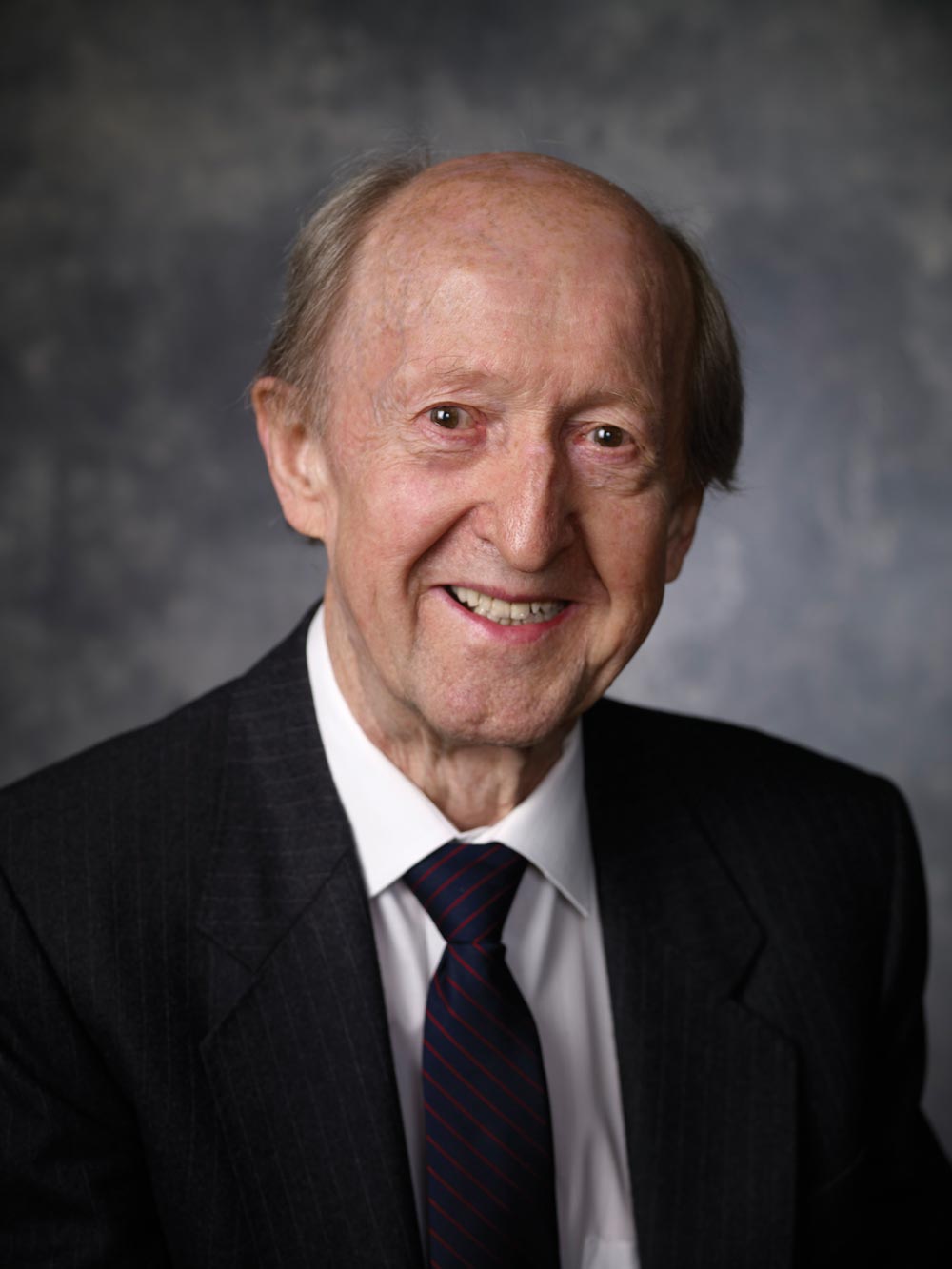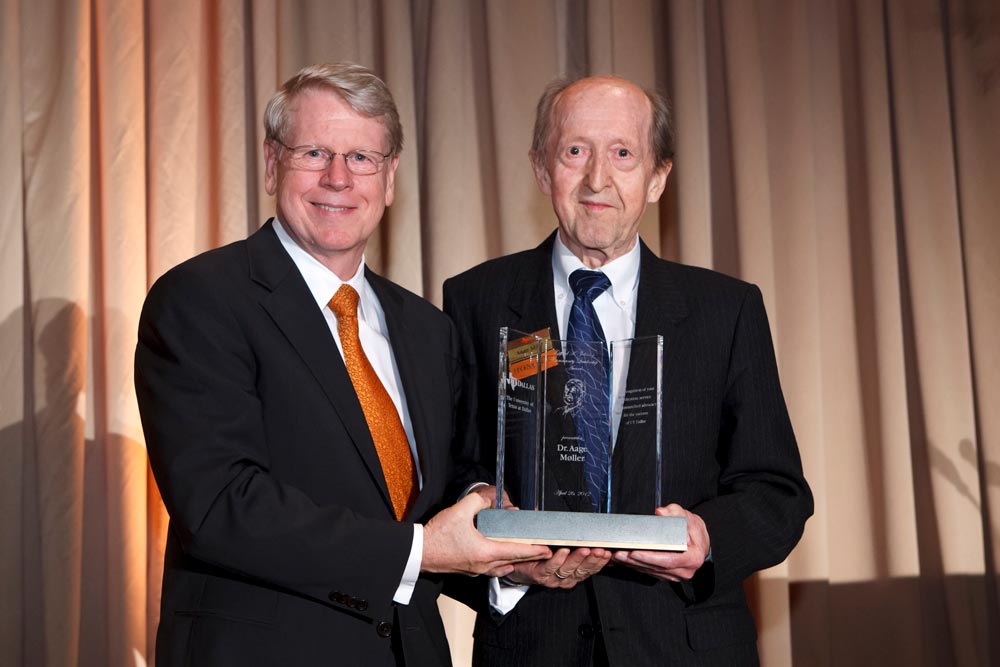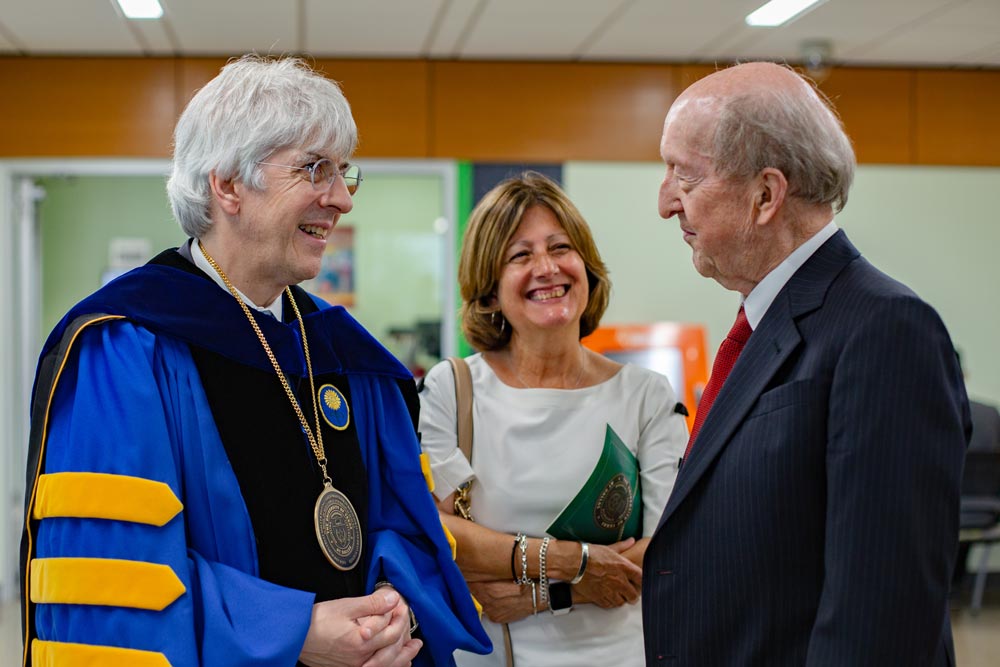
Dr. Aage Møller, a world-renowned innovator in the fields of neurological monitoring, sensory systems and neuroplasticity, and a professor at UT Dallas for 25 years, died Aug. 19 at the age of 90.
Møller, who was a Founders Professor of neuroscience in the School of Behavioral and Brain Sciences (BBS), is perhaps best known for his development of intraoperative neurophysiological monitoring (IONM), a technique that reduces the risk of serious complications during brain surgery.
At UTD, he helped develop the neuroscience program, now a full-fledged department, and was still teaching almost 500 students in 2021.
President Richard C. Benson, the Eugene McDermott Distinguished University Chair of Leadership, praised Møller as the exact kind of scholar the University needed to achieve its rapid ascent.
“How fortunate we were to be able to have Aage and Margareta Møller as our friends,” Benson said. “Through their example as teachers, researchers and mentors, and through the various funds they established, their legacy will live forever at UTD.”
Dr. Inga H. Musselman, UTD provost, vice president for academic affairs and the Cecil H. Green Distinguished Chair of Academic Leadership, said Møller had “quite an amazing career.”
“He made tremendous contributions in the areas of research, teaching and mentoring. His classes were full, and his students loved him,” she said.
Møller was born April 16, 1932, in Finderup, Denmark. His aptitude for electronics led him to study in Stockholm — first at the KTH Royal Institute of Technology, then at the Karolinska Institute, where he received his doctorate in medical science in 1975. He later studied the cochlea in depth, including a 1977 study presenting proof that the cochlea in a living animal is much more frequency-selective for weak sounds than loud sounds.
In 1978 Møller joined the University of Pittsburgh School of Medicine’s otolaryngology department. His interests shifted to tinnitus and the auditory brainstem response (ABR). His work was the first to describe how the different components of the ABR are generated, and he began to connect many common disorders, including tinnitus and chronic pain, to maladaptive neuroplasticity.

In 2012, Dr. Aage Møller receives a Gifford K. Johnson Community Leadership Award from then-UTD President David E. Daniel.

In 2019, Møller meets with Dr. Steven Small (left), dean of BBS, and Dr. Ana Solodkin, professor of neuroscience, after the investiture ceremony, where Small was honored as the Aage and Margareta Møller Distinguished Professor in Behavioral and Brain Sciences, an endowment the Møllers created in 2009.
He eventually modified the methods he used for electrophysiological brain research into a system for reducing the risk of nervous system damage during surgery. In 1988 he published the first book on the subject, which established the medical field of IONM.
Møller arrived at UTD in 1997. His research pivoted to neurophysiologic abnormalities in individuals with autism. He developed teaching programs in the biology of pain, sensory systems and neuroplasticity, and he established one of the first university programs to teach IONM to graduate students.
Dr. Alice O’Toole, the inaugural Aage and Margareta Møller Professor of psychology, said there is no better role model than Møller. He and Margareta, who died in 2011, established the professorship in 2008 to support the research activities of a faculty member in BBS.
“To my mind, he was the perfect academic; he was genuinely dedicated to all facets of the job — researcher, mentor and teacher,” O’Toole said. “What made him such a great role model for students was that he never stopped learning.”
Møller published 24 books, more than 200 peer-reviewed articles and in excess of 100 book chapters. He gave more than 300 invited lectures around the globe. He served as chairman of the UTD Institutional Review Board for 13 years and was instrumental in building the human subjects research committee.
He received the President’s Teaching Excellence Award for Tenure-Track Faculty from UT Dallas in 2011, the same year that he established the Aage Møller Teaching Award. Through the years, he also supported students through the Aage and Margareta Møller Endowed Scholarship, the Aage and Margareta Møller Fund for Vets of the U.S. Armed Forces, and by funding student travel in BBS.
– Stephen Fontenot